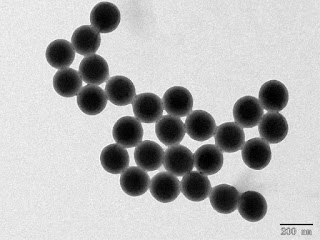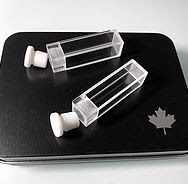As silica nanoparticles are more
frequently studied for usage in drug delivery systems, their properties must be
sequentially optimized to reduce or remove any hazardous qualities that have
been observed. The cytotoxicity of silica nanoparticles has been discovered to
be directly correlated with their size, dose, cell type,
duration of treatment, surface area, and structural discrimination. The great
chemical stability, biocompatibility, and targeted and controlled release of
silica nanoparticles are distinctive characteristics. The increased stability
is a result of the silica's single bond O bond. They have demonstrated its use
in tumor-specific medication targeting, cell tracing and biosensing, and
diagnostic tools.
 |
| Polystyrene Nanoparticles |
Due to their biocompatibility and
simplicity in manufacturing, silica nanoparticles are the most crucial kind for
drug administration since they allow for surface customization. Silica
nanoparticles are suitable candidates for drug carriers because of their tiny
size and adaptable surface modification. Because mesoporous silica has a large
number of empty pores, a significant amount of active moiety can be contained
within it. For the regulated release of medicinal drugs, silica nanoparticles
make an excellent candidate because of their enormous surface area, pore
volume, and great stability. Solid, nonporous, and mesoporous silica
nanoparticles are the three basic varieties. Silica nanoparticles have
developed into a crucial system for biological imaging and the administration
of medications and genetic material because of their chemical and physical
stability, well-defined hydrophilic surface, and capacity to protect drugs from
an aggressive immune response. Go ahead! And claim the top benefits and
advantages of world-class silica
nanoparticles and polystyrenenanoparticles.


%20Microspheres.jpg)


